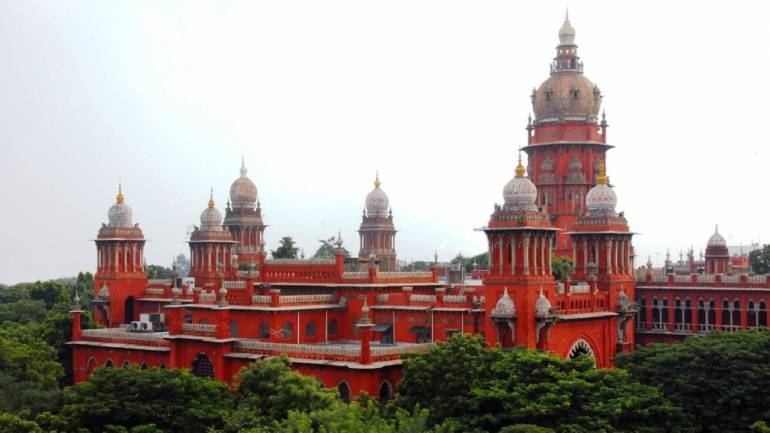
TN to probe corruption charges against former minister Velumani

The Tamil Nadu government told the Madras High Court on July 18 that it will probe former AIADMK minister SP Velumani for alleged corruption on the basis of a Comptroller and Auditors General (CAG) report that highlighted irregularities in awarding contracts to Chennai and Coimbatore municipal corporations.
Advocate General (AG) R Shunmugasundaram told the High Court that the CAG report concurred with the findings of Chennai-based NGO Arappor Iyakkam, which alleged collusion between the Chennai Municipal Corporation officials and former local administration minister Velumani. Making his submissions on a Public Interest Litigation (PIL) moved by Arappor Iyakkam, the Advocate General said an investigation would be carried out and the government would file an FIR, if needed.
Arappor Iyakkam has sought a Special Investigation Team (SIT) probe into the matter.
During the court hearing on June 21, Velumani said before the judge that the Directorate of Vigilance and Anti-corruption (DVAC) had given him a clean chit and the present disposition cannot reverse it. The bench of Chief Justice Sanjib Banerjee and Justice Senthilkumar Ramamoorthy is yet to accept the DVAC’s clean chit though.
Undue favour to contractors
Jayaram Venkatesan, convenor of Arappor Iyakkam, exclusively told The Federal. “We have filed two cases on Velumani and Chennai Corporation. We have given a sample in our petition to show how similar technique was used to provide tenders in both the cases,” Venkatesan said.
Iyakkam explained his point by giving the example of a road project. For a typical road project, items like ready-mix concrete and bitumen are required. The corporation officials set higher prices for such items than the Schedule of Rates (which prescribes the rates for construction materials and labour wages) and market rates. Then it sets lower prices for other 10 to 15 items, which are not needed for the project.
“The prices for those unnecessary items are 100 percent lower than Schedule of Rates. What that means is that the Corporation will never carry out the works involving those items. In order to show that the overall tender rate is equal to market rate, the officials bring those items into the project,” said Venkatesan.
Also read: ‘No scope for talks’, Stalin snubs Karnataka CM on Mekedatu
Suppose if there are two items needed for a project. Consider the Schedule of Rates for those items as Rs 1,000 each. One bidder quotes the exact rates for each item and the other quotes Rs 1,900 for one item and Rs 100 for the other item. “Superficially, the tender rates quoted by the two bidders are equal to the Schedule of Rates i.e. Rs 2,000. The Corporation, however, will award the tender to the second bidder and won’t give bill to the contractors for the item which quoted Rs 100,” said Venkatesan.
It is generally assumed that if a bill is issued but the work is not carried out then it amounts to corruption. However, overpricing or lowering prices in this manner also amounts to corruption, argued Venkatesan. “This way, tenders are allotted to contractors at 100 percent more than the exact Schedule of Rates. In this case, such tenders were awarded to people either related to the minister or to people who were close to him,” added Venkatesan.
The CAG had found similar pattern of corruption during its investigation in the case.

